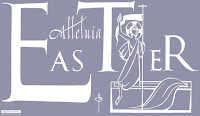Bishop Margaret Payne sent out her latest thoughts and I post them here for all to see. She is thinking about stewardship.
Practice Usufruct
By Bishop Margaret G. Payne, New England Synod, ELCA
Reprinted from the May 2007 issue of “The Lutheran Link,” the quarterly magazine of the New England Synod.
By Bishop Margaret G. Payne, New England Synod, ELCA
Reprinted from the May 2007 issue of “The Lutheran Link,” the quarterly magazine of the New England Synod.
The next time you are tempted to grumble that the word “stewardship” is awkward to use in casual conversation, just be glad that I am not exhorting you to a more usufructary way of life. Author Wendell Berry likes to use the word “usufruct” which means: the right of enjoying the use and advantage of another’s property, short of the destruction or waste of its substance.
We enjoy the benefits of life on earth, God’s “property” and gift to us. In Genesis, we are reminded that God gave the dominion of earth and its creatures to man and woman. But the greedy edge of our relationship to the earth has caused us to fail in the caring stewardship that God intended. Now the earth is in danger of destruction.
At the other end of the bible, a careful reading of the book of Revelation gives a different slant than the “Left Behind” distortion of the day of judgment: “The nations raged, but your wrath has come, and the time for judging the dead, for rewarding your servants, the prophets and saints and all who fear your name, both great and small, and for destroying those who destroy the earth.” (Revelation 11:18) We are not “saved” when we leave the earth behind. Instead, we find the wholeness that God intends in the midst of our life on earth, which includes the care of people, civil order and the environment.
Have you been actively involved in caring for the earth rather than destroying it? Fifteen years ago, the ELCA passed a social statement: “Caring for Creation: Vision, Hope and Justice.” In that statement, as well as in the resolution passed last year by our synod assembly, each congregation is urged to be a center for study and caring for creation. Is there a Care for Creation Committee in your church? Have you done an energy audit for the building? Have you written a covenant to reduce energy consumption and engage in advocacy for the sake of the stewardship of the earth?
Here’s a deal: you don’t have to remember the word “usufruct” but you do need to get a copy of the ELCA’s social statement and form a group in your congregation to study it and act on it. It is prophetic and totally relevant to the present situation. It includes these prayers:
We pray, therefore, for the humility and wisdom to stand with and for creation, and the fortitude to support advocates whose efforts are made at personal risk.
We pray, therefore, for the strength to change our personal and public lives, to the end that there may be enough.
We pray, therefore, for the creativity and dedication to live more gently with the earth.
(Note: The ELCA’s social statement, “Caring for Creation: Vision, Hope and Justice,” is available at http://www.elca.org/socialstatements/environment/ .)

